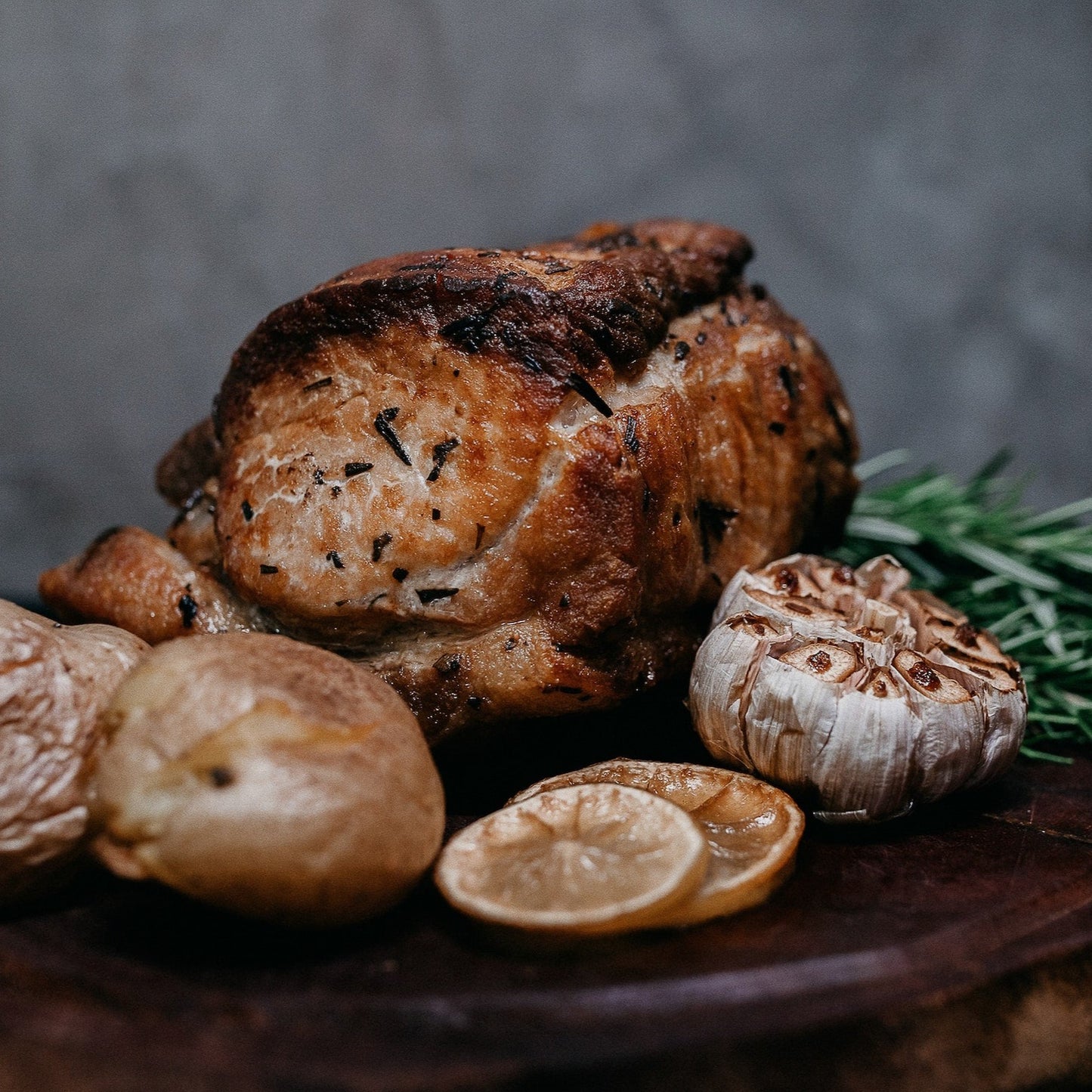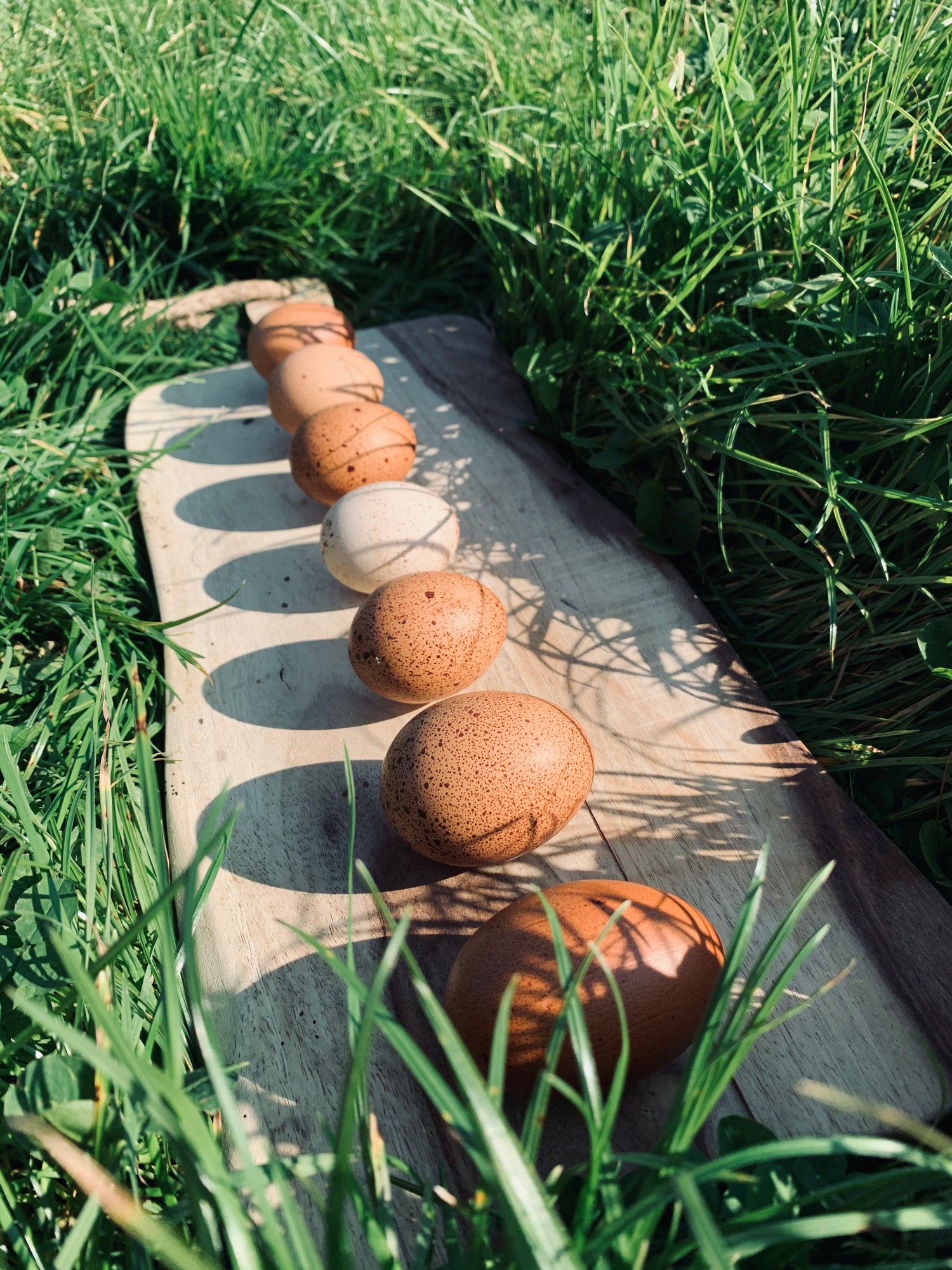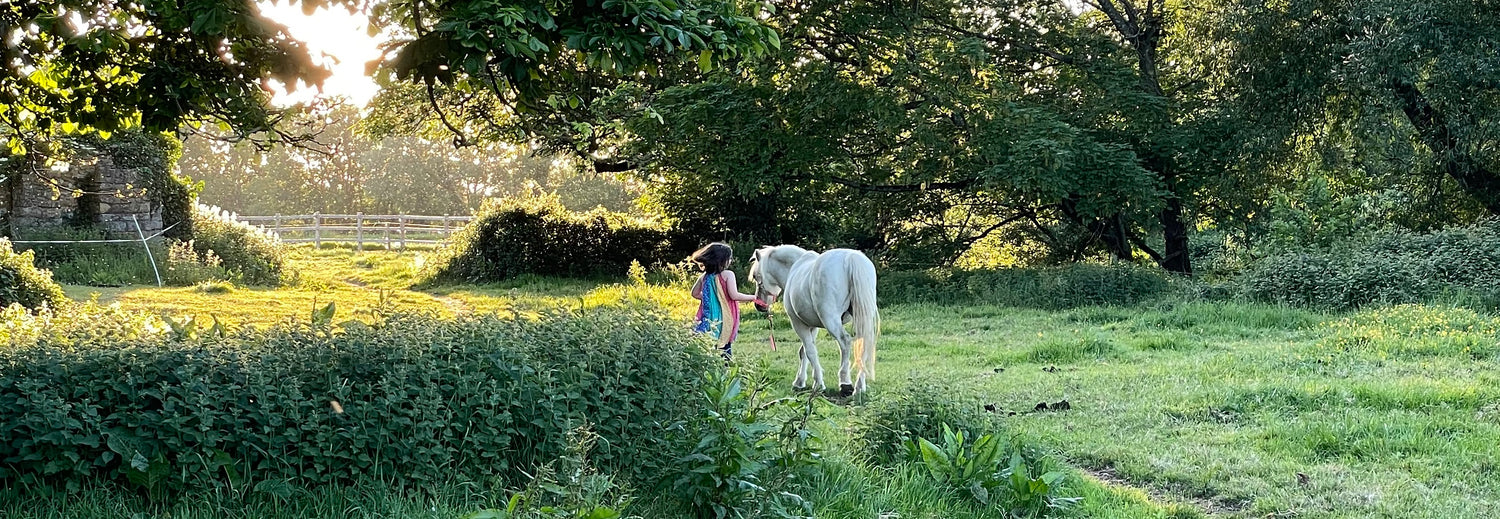Pork Leg (boneless) - Saddleback | Rare Breed | Slowly Reared | Free Range
Pork Leg (boneless) - Saddleback | Rare Breed | Slowly Reared | Free Range
One of the most joyous Sunday lunch cuts, especially if there are leftovers for epic sandwiches during the week.
Our genuinely free-range pigs have been raised slowly on our regeneratively farmed pastures and their diverse diet contributes to their fantastic taste. As a result their meat may vary in shape and level of fat.
All our meat will arrive with you already frozen, to go straight in to your freezer, or ready to be defrosted and turned in to something delicious.
We aim to use the minimum amount of plastic when wrapping your meat products. Unfortunately at the moment we haven't found an alternative material which stores the meat so well for so long. Therefore, in the interest of reducing food wastage, we continue to shrink wrap in food grade plastic. This is something we regularly monitor, with a view to changing when possible.
6 in stock
Couldn't load pickup availability

Reviews of our Meat

Why buy from us
Ethically
All our products are beautifully crafted from natural and sustainable materials. Our meat and eggs come from animals and land tended with careful respect.
Environmentally
We wish we could get all our products to you packaging-free. However, in the interests of preserving and protecting them, we have to wrap them. We have spent a lot of time, over a lot of coffee, carefully selecting the best options to get our products to you in perfect condition with the least amount of packaging.
Regeneratively
The benefits of regenerative farming are clear. The damage caused by climate change is reversed, creating resilient ecosystems by rebuilding soil organic matter and restoring degraded soil biodiversity – resulting in both carbon drawdown and improving the water cycle.

